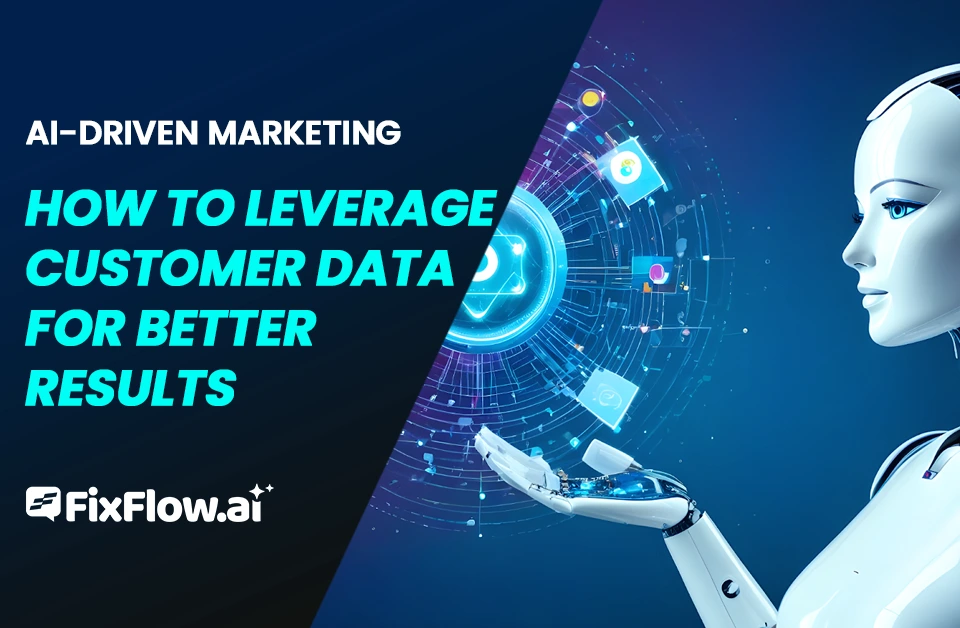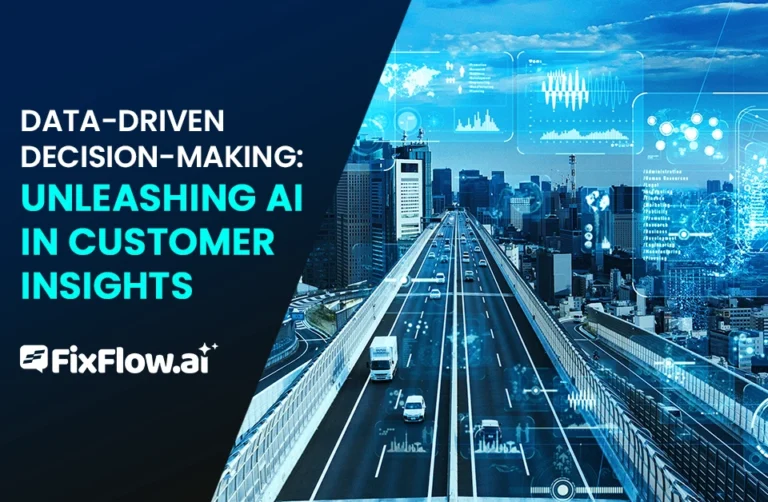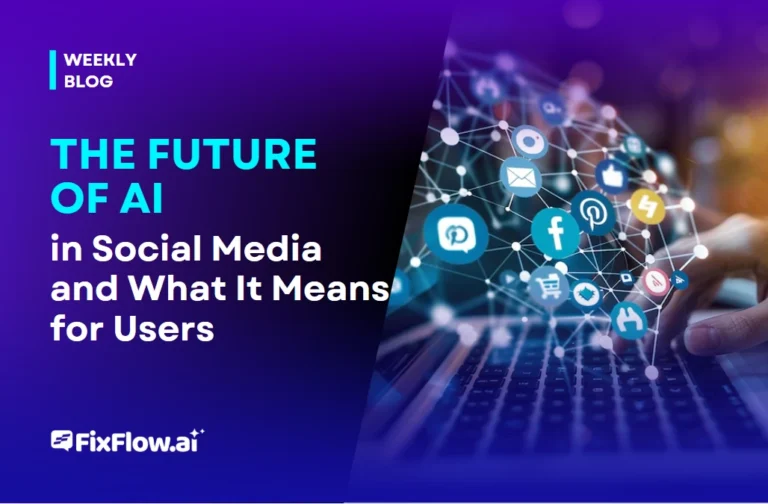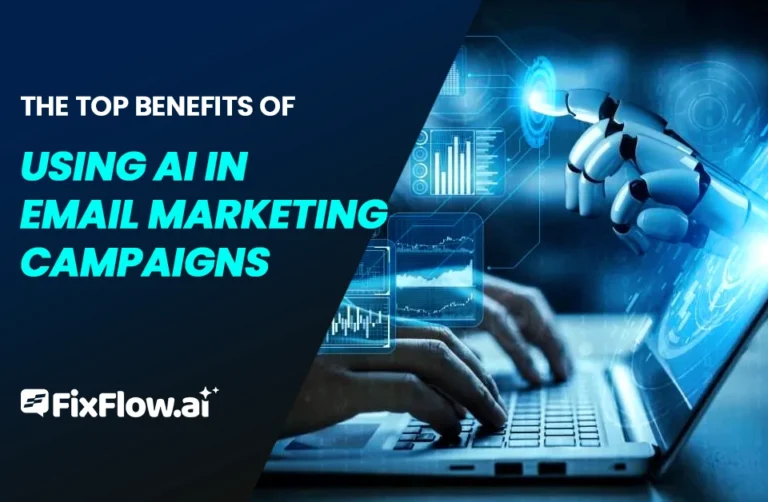AI-Driven Marketing: How to Leverage Customer Data for Better Results
To leverage customer data for better results in AI-driven marketing, start by collecting first-party data from your emails, CRM, and website interactions, and gather third-party insights from social media trends. Use AI tools to analyze this vast data, uncover patterns, and predict future customer behavior. This allows you to craft personalized experiences that anticipate customer needs, boosting relationships and loyalty. Additionally, AI enables real-time audience segmentation and interaction, ensuring your engagement strategies are precisely targeted. Measure your success and ROI by tracking performance and aligning objectives with business goals. These strategies can enhance your marketing effectiveness even further.
Understanding AI in Marketing
When it comes to AI in marketing, it’s important to understand that the technology isn’t just a tool—it’s a transformative force reshaping how businesses engage with customers. By harnessing artificial intelligence, you’re not merely automating tasks but exploring new domains of possibilities through customer data analytics. AI’s ability to process vast amounts of data allows businesses to generate predictive marketing insights, anticipating customer needs and personalizing experiences like never before.
Imagine being able to forecast trends or customer behaviors that might impact your marketing strategy. This is where AI shines, providing insights that are not just data-driven but predictive. You can understand what your customers are likely to do next, allowing you to tailor your marketing efforts to meet those expectations proactively. Artificial intelligence in marketing transforms raw data into strategic insights, helping you make informed decisions that can elevate your brand above the competition.
Collecting and Analyzing Data
To effectively harness AI-driven marketing, you need to focus on systematically collecting and analyzing diverse customer data. Begin by gathering first-party data from sources like emails, CRM systems, and website interactions. This foundational data provides a clear view of your customers’ preferences and behaviors. Don’t overlook third-party data, including social media trends and external purchase behaviors, to enrich your understanding.
Data analysis is essential in transforming raw information into actionable insights. Utilize AI tools to conduct consumer behavior analysis, identifying patterns and predicting future actions. This process helps you understand what drives your customers, allowing you to tailor marketing strategies more effectively.
Real-time customer segmentation is another powerful application of AI. By segmenting customers based on their current behaviors and interactions, you can deliver targeted messaging that resonates with their immediate needs and interests. This dynamic approach ensures that your marketing efforts are always relevant and timely.
Personalizing Customer Experience
Harnessing the power of AI, you can create a personalized customer experience that makes each interaction feel unique and tailored to individual preferences. This level of personalization is achieved by analyzing customer data to gain insights into their behavior, preferences, and needs. By leveraging AI, you can automatically segment your audience based on these insights and deliver content, offers, and recommendations that resonate with each customer.
AI tools sift through vast amounts of customer data to identify patterns and predict future behaviors, enabling you to anticipate what a customer might want next. This predictive ability allows you to stay ahead of customer expectations and enhance their journey with your brand. For instance, using insights from past purchases and browsing habits, AI can recommend products that customers are more likely to purchase, thereby increasing conversion rates.
Moreover, personalization driven by AI doesn’t just stop at product recommendations. It extends to personalizing communication channels, adjusting marketing messages, and even tailoring the timing of interactions to suit individual customer preferences. By doing so, you not only improve customer satisfaction but also build stronger relationships, fostering loyalty and encouraging repeat business. With AI, personalization becomes a powerful tool in your marketing arsenal.
Enhancing Engagement Strategies
AI can revolutionize your engagement strategies by enabling real-time interactions and personalized messaging that captivate your audience. By integrating AI-driven solutions, you can tailor your marketing efforts to align precisely with audience behavior. Imagine knowing exactly when a customer is most likely to respond to an offer or which product they’ll be interested in next. AI can provide these insights, allowing you to create personalized marketing strategies that resonate.
When you understand your audience’s behavior, you’re equipped to craft messages that seem almost bespoke. AI doesn’t just analyze data; it predicts trends and behaviors, giving you a strategic advantage. For example, AI can segment your audience in real-time, making sure each message hits the mark with precision. This level of personalization fosters a deeper connection with your audience, making them feel valued and understood.
Moreover, AI-driven engagement strategies keep you agile in a dynamic market. As audience preferences shift, AI adapts, guaranteeing your strategies remain effective and relevant. By leveraging AI, you’re not just reacting to changes; you’re anticipating them, staying one step ahead. This proactive approach ensures your brand maintains a strong, engaging presence.
Measuring Success and ROI
Understanding how to measure success and ROI is essential for demonstrating the value of your AI-driven marketing strategies. You can’t just implement AI tools and hope for the best; you need concrete data to track performance and justify investments. Marketing performance tracking allows you to see what’s working and what isn’t, enabling you to tweak your strategies for best results. By using automation, you can effortlessly gather and analyze data, freeing up time for strategic decision-making.
To effectively measure ROI, start by defining clear objectives that align with your business goals. Are you aiming for increased sales, higher engagement, or improved customer retention? Whatever your targets, make sure your AI tools are set up to collect relevant data points. Automation plays an important role here, as it helps streamline data collection and analysis, allowing for real-time insights.
Don’t overlook the importance of regular reporting and analysis. By continuously monitoring your marketing performance tracking metrics, you can make data-driven decisions that enhance your strategy’s effectiveness. Remember, the ultimate goal is to achieve a higher ROI, and with AI, you have the tools to make that happen efficiently.
Frequently Asked Questions
How Can Small Businesses Start Implementing AI-Driven Marketing Strategies?
To start implementing AI-driven marketing strategies, first assess your data readiness. You don’t need massive data sets; focus on quality first-party data like customer emails and website behavior. Choose easy-to-use AI tools such as HubSpot AI or Salesforce Einstein, which are great for beginners. Start small by automating simple tasks like email marketing or customer segmentation. Remember, AI’s here to boost your efforts, not replace you.
What Ethical Considerations Should Be Made When Using AI in Marketing?
When using AI in marketing, you’ve got to contemplate ethical aspects like data privacy and consent. Make sure you’re transparent about how you collect and use data, complying with regulations like GDPR and CCPA. Avoid bias in AI algorithms by regularly auditing them. It’s also essential to balance automation with human oversight to maintain trust. Remember, your customers’ trust is pivotal, so handle their data responsibly and ethically.
How Does AI Impact Consumer Trust in Marketing Practices?
AI’s impact on consumer trust in marketing is significant. You might find that AI can enhance trust by personalizing experiences and offering relevant content, but it can also raise concerns about privacy and data misuse. When using AI, it’s essential to be transparent about data collection and respect privacy laws. Building trust means showing consumers you’re using their data responsibly and providing them with value, not just targeting them aggressively.
What Are Common Misconceptions About AI-Driven Marketing?
When thinking about AI-driven marketing, you might believe it’s just about robots taking over jobs or that it’s too complex to understand. Don’t fall into the trap of assuming AI is only for big companies or that it’ll instantly solve all marketing challenges. It’s not about replacing human creativity but enhancing it. By understanding these misconceptions, you’re better positioned to leverage AI effectively in your marketing strategies.
How Can AI-Driven Marketing Be Tailored for Niche Industries?
When you’re tailoring AI-driven marketing for niche industries, focus on understanding the unique needs and preferences of your target audience. Leverage AI to analyze specific customer data, identifying patterns that might not be obvious at first glance. Customize your marketing strategies to address these findings, ensuring your messaging resonates with your niche market. Don’t forget to utilize AI tools for personalized content, which can greatly boost engagement and conversion rates in specialized sectors.







